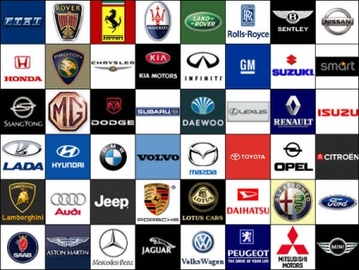Alco Standard Co.
Brand
In 1958, Louis J. Fageol retired, selling Fageol Products marine engine division to the Crofton Mfg. Co. of Los Angeles. Twin Coach kept its successful Cheektowaga aircraft plant which was kept busy constructing wing and fuselage assemblies for Boeing, (B-52), Grumann, North American and Republic. In 1962, stockholders approved a name change for the company, and Twin Coach became the Twin Industries Corp.
In addition to Cummins and Fageol-Leyland-powered 40 ft. Highway Post Offices, the firm produced the Compac-Van, a medium-sized forward-control 18,000-26,000lb. G.V.W. van produced under a contract with Cleveland, Ohio’s White Motors Co. Highway Products assumed the sales and marketing of the Compac-Van in 1965 and in 1968 introduced a 25-passenger Chrysler V-8 powered pusher coach that they marketed as the Twin Coach in order to capitalize on a new series of mass-transit grants recently made available to small cities by the Federal government. A 29-passenger Twin Coach joined the Highway Products lineup in 1969 and in 1970 Joseph T. Myers sold his interest in the firm to Alco Standard Co., who subsequently used the facility to construct Class-A motor homes under the Cortez Motor Home brand name. Highway Products went bankrupt in 1975 after approximately 900 Twin Coach buses were constructed.
Subject ID: 10651
MoreIn 1958, Louis J. Fageol retired, selling Fageol Products marine engine division to the Crofton Mfg. Co. of Los Angeles. Twin Coach kept its successful Cheektowaga aircraft plant which was kept busy constructing wing and fuselage assemblies for Boeing, (B-52), Grumann, North American and Republic. In 1962, stockholders approved a name change for the company, and Twin Coach became the Twin Industries Corp.
In addition to Cummins and Fageol-Leyland-powered 40 ft. Highway Post Offices, the firm produced the Compac-Van, a medium-sized forward-control 18,000-26,000lb. G.V.W. van produced under a contract with Cleveland, Ohio’s White Motors Co. Highway Products assumed the sales and marketing of the Compac-Van in 1965 and in 1968 introduced a 25-passenger Chrysler V-8 powered pusher coach that they marketed as the Twin Coach in order to capitalize on a new series of mass-transit grants recently made available to small cities by the Federal government. A 29-passenger Twin Coach joined the Highway Products lineup in 1969 and in 1970 Joseph T. Myers sold his interest in the firm to Alco Standard Co., who subsequently used the facility to construct Class-A motor homes under the Cortez Motor Home brand name. Highway Products went bankrupt in 1975 after approximately 900 Twin Coach buses were constructed.
Subject ID: 10651
Subject ID: 10651
